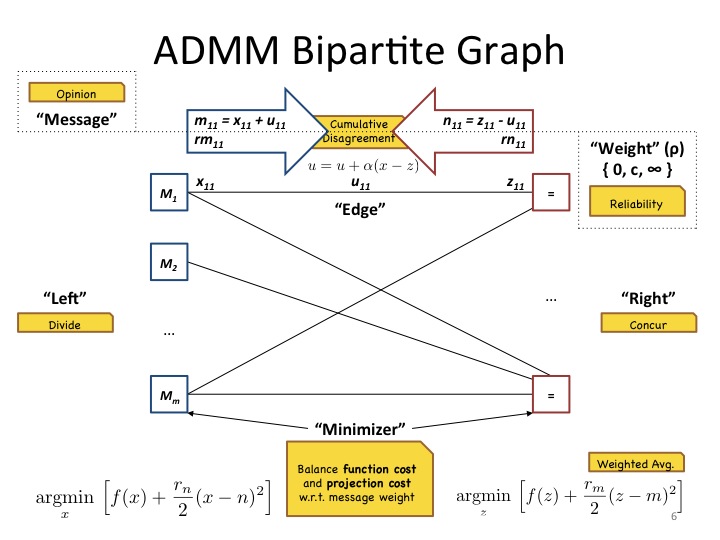An Improved Three-Weight Message-Passing Algorithm
We describe how the powerful “Divide and Concur” algorithm for constraint satisfaction can be derived as a special case of a message-passing version of the Alternating Direction Method of Multipliers (ADMM) algorithm for convex optimization, and introduce an improved message-passing algorithm based on ADMM/DC by introducing three distinct weights for messages, with “certain” and “no opinion” weights, as well as the standard weight used in ADMM/DC.
May 8, 2013
Arxiv.org 2013
Authors
Nate Derbinsky (Disney Research)
Jose Bento (Disney Research)
Veit Elser (Cornell University)
Jonathan Yedidia (Disney Research)
An Improved Three-Weight Message-Passing Algorithm
We describe how the powerful “Divide and Concur” algorithm for constraint satisfaction can be derived as a special case of a message-passing version of the Alternating Direction Method of Multipliers (ADMM) algorithm for convex optimization, and introduce an improved message-passing algorithm based on ADMM/DC by introducing three distinct weights for messages, with “certain” and “no opinion” weights, as well as the standard weight used in ADMM/DC. The “certain” messages allow our improved algorithm to implement constraint propagation as a special case, while the “no opinion” messages speed convergence for some problems by making the algorithm focus only on active constraints. We describe how our three-weight version of ADMM/DC can give greatly improved performance for non-convex problems such as circle packing and solving large Sudoku puzzles while retaining the exact performance of ADMM for convex problems. We also describe the advantages of our algorithm compared to other message passing algorithms based upon belief propagation.

